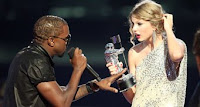On Sep 11, 2001 I was two weeks away from starting a new job, so I was still enjoying student-type parasitism at its worst.
I got up semi-comatose at around 1pm, staggered downstairs, put the kettle on and robotically got
BBC News 24 in the background.
I was literally in the middle of making my cup of tea when some breaking news from New York came in: a plane had crashed into one of the World Trade Center towers. I immediately remembered that the same place had been targeted by Islamists back in 1993 so I sat down perplexed and started watching the shocking images of a burning skyscraper.
As my two housemates Dave and Antonis joined in from their bedrooms, I could not believe my senses when another plane crashed into the second tower. By then, dozens of camera crews had been placed, which meant that the impact and its aftermath were filmed practically from all angles.
And that's how the day that changed history began. We stayed glued to the telly, literally, as more news came in that several planes were unaccounted for, and -as further reports came in about the Pentagon and Pennsylvania- I still remember the shared sense of unease not knowing exactly when the attacks were going to end.
The catastrophic brand that stemmed from Hollywood in the late 1990s,
Independence Day,
Arlington Road and the like, was actually happening live on telly, heralding the end of one of the most stable decades in history (minus Rwanda and Yugoslavia, which aren't footnotes, so maybe not).
Then the first tower started collapsing. I vividly remember how we'd all remarked at how well the impact from both plane crashes had been withstood. Equally, it was shocking to see both towers collapsing on themselves, in very similar fashion, one 56 minutes after it was struck and the other after 75 minutes. I still remember the BBC correspondent running for his life as two of the most imposing buildings on earth were crumbling into a terrifying cloud of dust and toxic debris.
As time went, a staggering amount of unaswered questions gradually started to emerge. Conspiracy theories were being drawn aplenty, some quite
factual (more of the kind of "the government knew and let it happen"), some completely
loopy (and that's without counting
David Icke's 'reptilian conspiracy') .
Either way,
how did the towers collapse and why so quickly? More importantly, why did they collapse on themselves? Why did
WTC7, not struck by any plane, collapse as well? Why did the BBC announced its collapse
26 minutes before it happened? Why are their non-
explanations so lame? Why were the steel remains from WTC
sold so speedily for recycling? What to make of those claims about
secondary explosions heard in the wake of the crash? How could the
hijackers' passports be spotted practically intact amidst the megatons of rubble?
We will never know. One thing that shouldn't be forgotten is that, for all the pondering that takes place in the aftermath, the events happened like a flash and in a random, uncontrolled and manic fashion. To expect a totally orderly and rational response as things go along is to forget the uniquely unpredictable nature of what went on.
Also, though
certain governments have been involved in all kinds of murky stuff for years (from
proxy wars to remote controlled
coup d'etats), the main problem with the most bizarre conspiracy theories is that -to have all that artifically orchestrated- you'd have to involve thousands of people at all levels over a period of time and the chances of not a single one, not even someone's partner, letting a word slip in eight years are just impossible.
We all knew however, that the US government was going to lash out. I remember watching the scenes of Palestinians
celebrating thinking that they'd just scored a PR own-goal of epic proportions.
Eight years on, and as we watch heartbreaking re-runs of the events, it's easy to forget that 9/11 meant primarily George W Bush's ratings going through the roof, allowing him to wage two wars in succession: Afghanistan and Iraq, both absolutely devastating.
In terms of our daily lives, things are no longer the same really. A creeping sense of insecurity has been with us since, further bolstered by the Islamist attacks in Madrid (2004) and London (2005). A man virtually unknown by many, a bearded jihadist called Osama bin Laden, became the 21st century bogeyman.
Flying as we'd known it is no longer with us. Controls became much stricter, at times draconian, the result of a world a hundred times more paranoid than before. Civil liberties, on both sides of the Atlantic, have been restricted on the back of the pervading sense of "us and them" and the "
threat to our national security". Racists have been handed more knee-jerk material on a tray and the preconceptions and misconceptions about entire populations are thriving.
One can't help but think, however, that in curbing our freedoms and giving way to irrationality, we gave in exactly to the logic of terrorism.
 What does it say about the country that Britain's political oracle is a rag based on bullying, tits and peeping into people's bedrooms?
What does it say about the country that Britain's political oracle is a rag based on bullying, tits and peeping into people's bedrooms? 






























